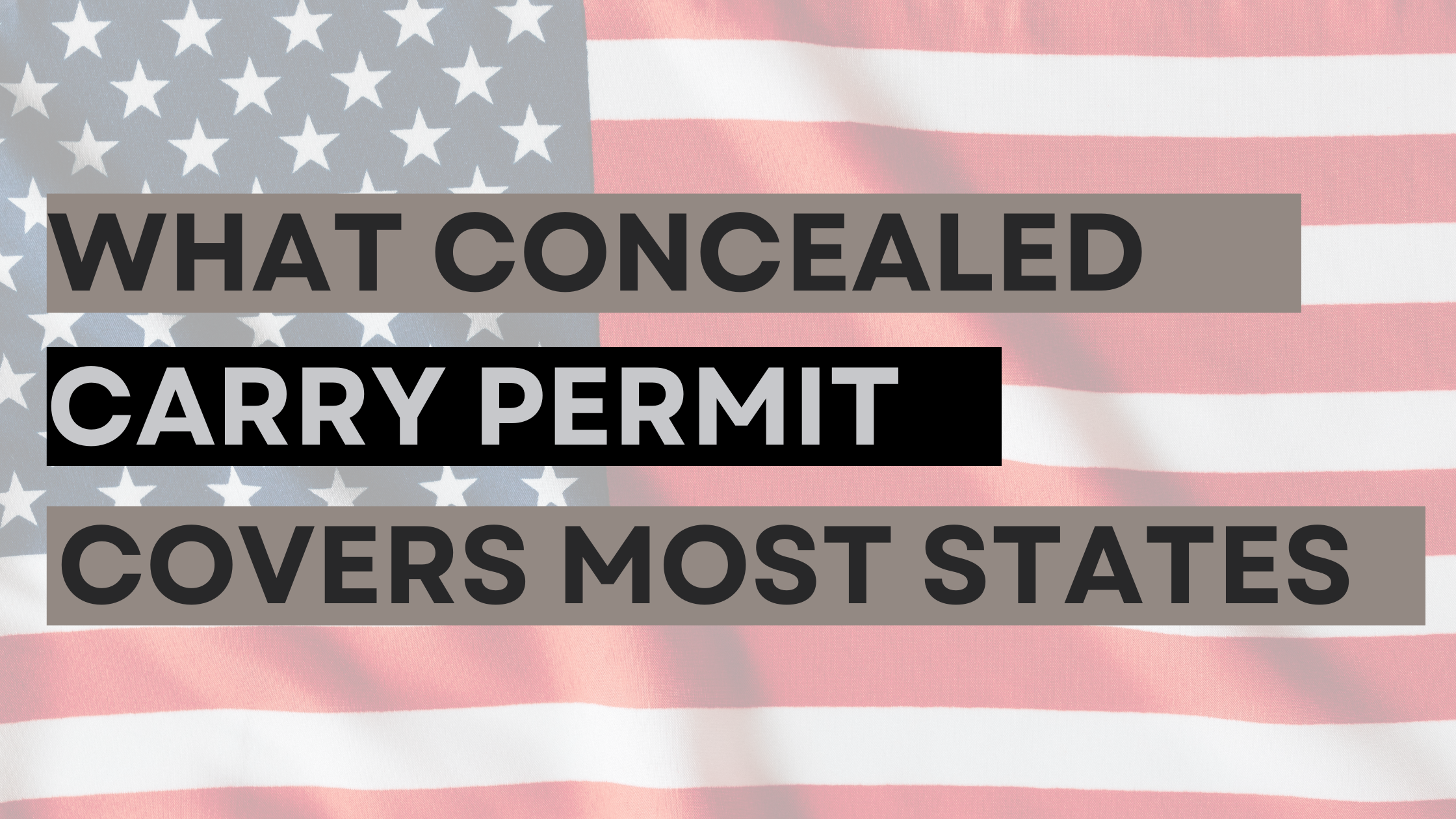Introduction What Concealed Carry Permit Covers the Most States?
For concealed carry holders who frequently travel, reciprocity is a critical factor in choosing a permit. Reciprocity refers to the agreements between states that honor each other’s concealed carry permits. Selecting a permit that covers the most states can maximize your ability to carry legally across the country. In this guide, we’ll explore which concealed carry permits provide the broadest coverage and how to decide which one is right for you.
Understanding Reciprocity
Reciprocity agreements allow one state to recognize a concealed carry permit issued by another. These agreements are influenced by:
-
State Laws: States with similar firearm regulations are more likely to have reciprocity agreements.
-
Permit Type: Resident and non-resident permits may have different levels of reciprocity.
-
Constitutional Carry States: Some states allow permitless carry, but reciprocity still matters for travel to other states.
Top Permits with the Broadest Coverage
Here are some of the most widely accepted concealed carry permits:
-
Utah Non-Resident Permit:
-
Recognized In: Over 30 states.
-
Why It’s Great: Easy to obtain and has extensive reciprocity agreements.
-
Requirements: Completion of a firearms safety course and background check.
-
-
Florida Concealed Weapon License:
-
Recognized In: Approximately 37 states.
-
Why It’s Great: Broad reciprocity and accessible for both residents and non-residents.
-
Requirements: Proof of firearms training and a clean background.
-
Are concealed carry permits required in Florida?
-
Arizona Permit:
-
Recognized In: Over 30 states.
-
Why It’s Great: Straightforward application process and high acceptance.
-
Requirements: Firearms training and no criminal history.
-
-
Texas License to Carry (LTC):
-
Recognized In: 35 states.
-
Why It’s Great: Strong reciprocity and excellent for frequent travelers.
-
Requirements: Training course, background check, and shooting proficiency test.
-
Factors to Consider When Choosing a Permit
-
Travel Habits:
-
Consider the states you travel to most frequently. Choose a permit that covers those states.
-
-
Eligibility Requirements:
-
Some states have stricter eligibility criteria, such as mandatory training or a minimum age requirement.
-
-
Cost:
-
Factor in application fees, training costs, and renewal fees.
-
-
Ease of Application:
-
If you live in a state with complex permitting processes, a non-resident permit from another state might be a better option.
-
How to Maximize Coverage
-
Obtain Multiple Permits:
-
Combining permits from different states can significantly increase your coverage.
-
Example: Holding both Utah and Florida non-resident permits can extend your reach to nearly 40 states.
-
-
Stay Updated on Reciprocity Agreements:
-
Reciprocity laws change frequently. Use a reliable reciprocity map or state government websites to stay informed.
-
-
Understand State-Specific Rules:
-
Some states have additional restrictions, such as limits on carrying in public buildings or schools, even if they honor your permit.
-
Conclusion
If maximizing state coverage is your goal, permits like Utah, Florida, Arizona, and Texas offer excellent options. By considering your travel habits, eligibility, and the requirements of each permit, you can make an informed decision that aligns with your needs.
Ready to take the next step? Explore our blog on Which Concealed Carry Permit is the Best? for a deeper dive into choosing the right permit. Stay safe and carry responsibly.

